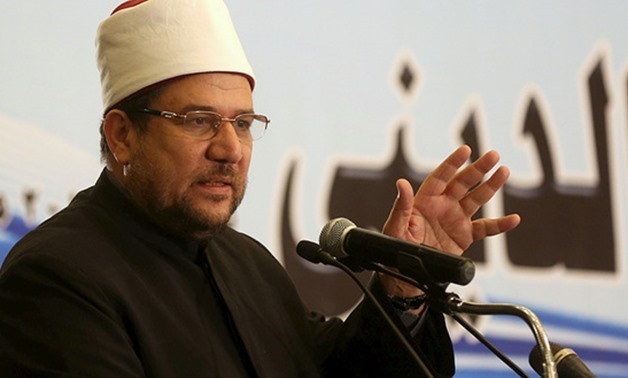
Minister of Awqaf Mohamed Mokhtar Gomaa - REUTERS/Mohamed Abd El Ghany
CAIRO – 6 February 2018: Clergymen should call on citizens to participate in the 2018 upcoming presidential election and refrain from using houses of worship for electoral propaganda, according to the Awqaf Ministry.
In this regard, the Awqaf Ministry issued several instructions to urge their clergymen to call on citizens to participate in the election, and at the same time to refrain from partaking in electoral propaganda in mosques, stressing that there is a difference between calling for participation and influencing or directing voters.
Minister of Awqaf Mohamed Mokhtar Gomaa said that positive participation in the democratic process is the legitimate and national aspiration, and every person should be honest in giving their votes to those who are able to bear the responsibility and achieve national interests.
He clearly outlined that mosques will not be used again for the interests of a specific person or parties, or for electoral propaganda, as mosques should call for only God and should be away from politicization; although, they should have a leadership role in the legitimate national and public interests.
Undersecretary of the Ministry of Awqaf Sheikh Jaber Tayeh further remarked that clergymen should raise awareness of citizens to participate in the election without supporting a specific candidate.
On the other hand, the Catholic, Orthodox and Protestant churches in Egypt affirm their neutrality in the upcoming presidential election, said Andrea Zaki, head of the Evangelical community, on February 4.
Zaki pointed out that Pope Tawadros instructed churches to refrain from partaking in propaganda or hosting seminars, while stressing the need to participate in the electoral process.
He clarified that voting is free for every Egyptian citizen registered in the voters’ lists, including the clergy, provided that his office is not used to direct voters to one of the candidates.
On January 31, the National Election Authority (NEA) said that President Abdel Fatah al-Sisi and Head of Ghad Party Moussa Moustafa Moussa have applied to run in the 2018 presidential election.
Voting in the 2018 presidential election in Egypt will commence on March 26, as announced by the NEA on January 8. Sixty million eligible voters will cast their ballots in the election between March 26 and 28 in Egypt, while expatriates will vote between March 16 and 18.
Comments
Leave a Comment